We have seen growing awareness about celiac disease and gluten intolerance in recent times. Many nutritionists, doctors, and influencers have been endorsing gluten-free diets for celiac disease.
Celiac disease can start right in childhood or may even develop at a later age. But while the patients who have celiac disease can easily understand their condition, if you have celiac disease without any noticeable symptoms, you have something we call silent celiac disease.
Not many people are aware of silent celiac disease, and therefore they may go undiagnosed. This unawareness leads to them suffering long without knowing the cause.
To better understand celiac disease and silent celiac disease, let us first understand its cause and symptoms.
What Exactly Is Silent Celiac Disease?
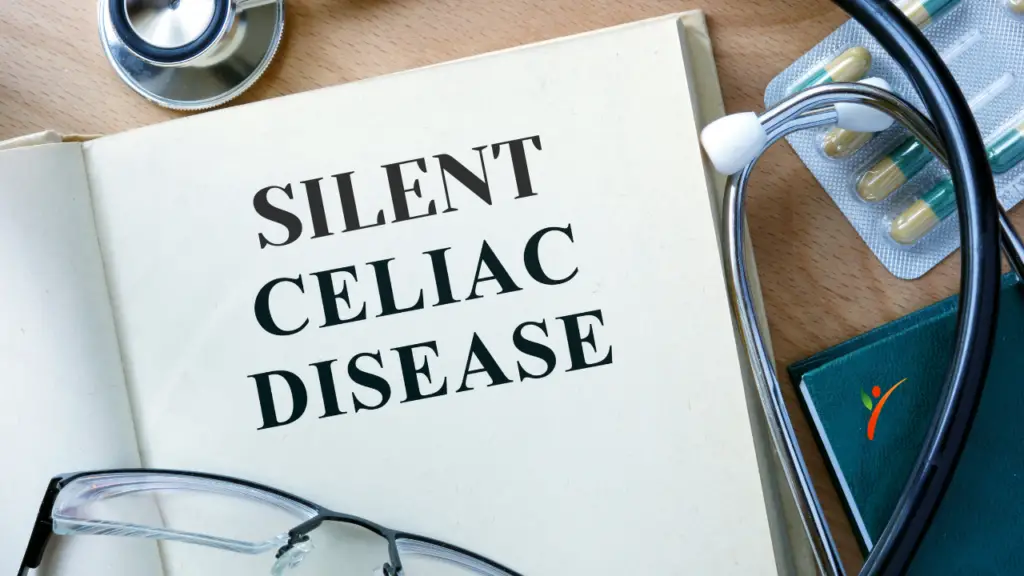
The main difference between celiac disease and silent celiac disease is that people with celiac disease know that their bodies are gluten sensitive. And that is why they can take precautionary measures to avoid allergic reactions.
But with silent celiac disease, they are unaware that they developed it, or maybe even how to recognize it. So, people who have celiac disease but do not have noticeable symptoms have silent celiac disease. The silent celiac disease also has another name as the Asymptomatic Celiac Disease.
It is not easy to recognize whether one has silent celiac disease or not.
Here are some gluten intolerance symptoms –
Bloating

It is one of the very first symptoms of gluten intolerance or celiac disease. Bloating is when you feel super inflated in your stomach as if filled with gas, right after eating a meal.
While gluten intolerance is not the only cause for bloating, it is a major one in many people. Bloating can be quite uncomfortable, especially with the constant feeling of fullness and gas.
If you always seem to feel bloated or swollen, especially after a heavy meal with gluten ingredients, the bloating is undoubtedly due to gluten. You may be suffering from gluten sensitivity even if you do not have celiac disease, which can very well cause bloating.
Having Issues Pooping
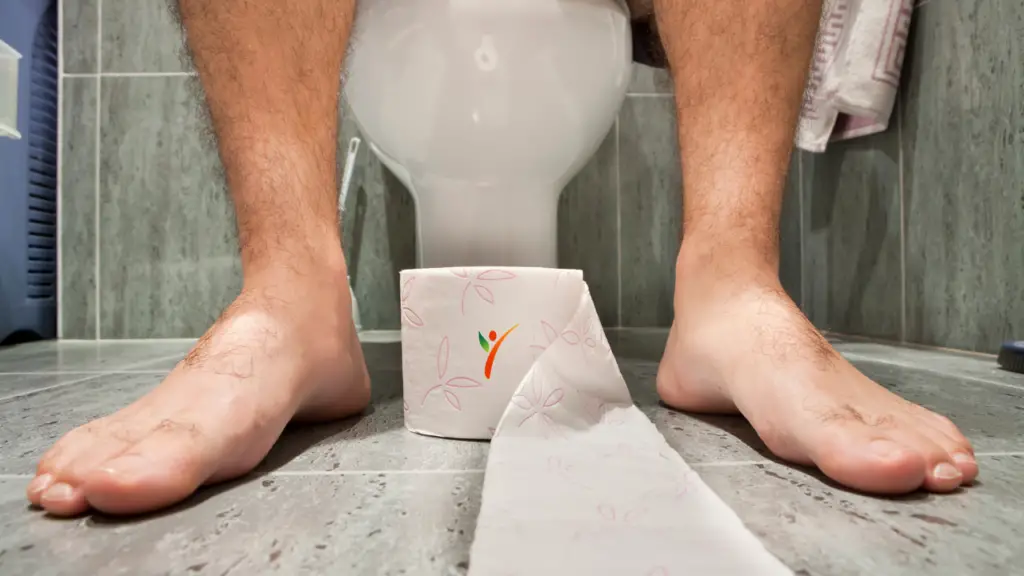
If you consume gluten even after knowing you have a gluten sensitivity, your body can show adverse reactions. Gluten intolerance has two extremes associated with it, which are diarrhea or constipation. Don't worry too much if your diarrhea or constipation happens once in a while. But when your stools are loose or hard regularly, that can be a concerning thing.
When the gluten wrecks your stomach and intestines' gut lining, your bowel movements will be affected. The damage done by gluten weakens the gut lining. Therefore, your body absorbs lesser nutrients and vital components. And as a result, you face discomfort and changes in stools.
Dehydration Or Fatigue

Making multiple trips to the bathroom can be quite exhausting! The changes in bowel movements with either recurrent diarrhea or constipation may drain you out of energy in no time. Passing stools frequently will cause the electrolytes and minerals to be flushed out of your body quickly.
You will find yourself feeling exhausted or dehydrated as a result.
Pains In The Abdomen

According to 83% of people with gluten intolerance, they have chronic abdomen pains. And these pains become aggravated when they accidentally ingest gluten.
In gluten-sensitive and everyday individuals, gluten has time and again proven to be a disaster. Suppose you are one of the many people who complain of recurring abdominal pains and bloating right after heavy consumption of gluten-containing food. In that case, it is probably a gluten poisoning case.
Headaches

You may think that your frequent headaches are due to stress or a sudden change in your lifestyle. But what about the times when those headaches seem to be persistent without any reason? Most gluten-sensitive people also experience nagging headaches, which have no evident cause.
If you have been facing a similar situation and have headaches that do not have a reason, you should look at your diet.
Skin Issues

Having skin diseases if you have celiac disease is not very common but is existent among some patients. Around 10% of patients with celiac disease complain of developing skin diseases like psoriasis, chronic urticaria, and the likes.
If you have been facing an itchy, painful, and burning, or inflammatory skin condition, you may have developed an allergy to gluten or celiac sickness.
Bad Mental Health

Having bad mental health symptoms may not be immediately visible but rear their head after time. Studies do not show gluten as a direct cause of anxiety or stress or inadequate mental health in general. But, there are testimonials of people with gluten sensitivity suffering from these.
Anxiety or stress may not be directly caused by gluten, but it can play a role in triggering it.
Sudden Weight Loss
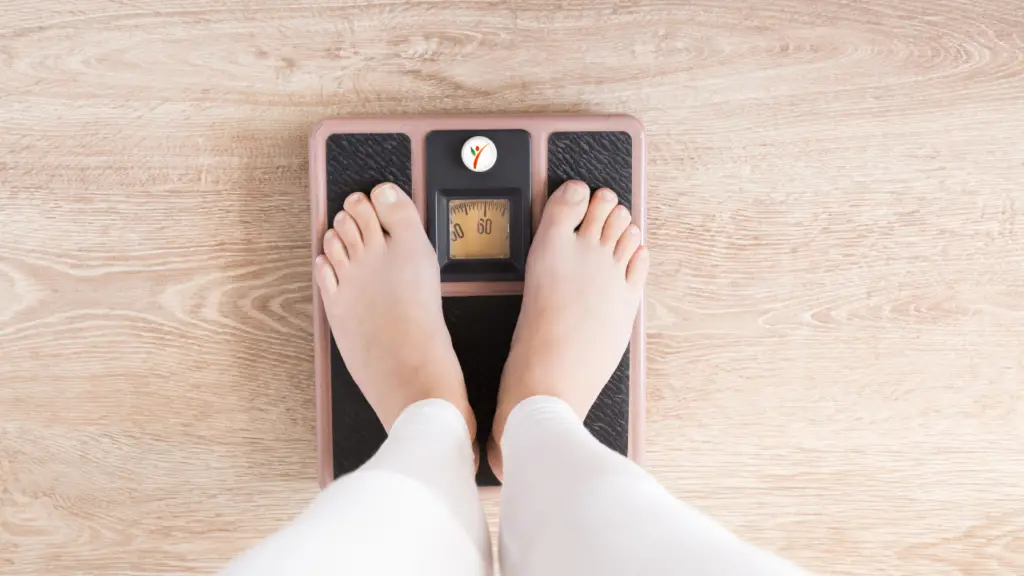
Weight loss may feel like an outstanding achievement for some people. Yet, when this weight loss is without any effort or reason, it can be alarming. Gluten is a protein that provides the body with all necessary vitals and nutrients.
With gluten intolerance or developing celiac disease, your body does not accept the gluten and becomes aggravated if consumed. This lack of nutrients and minerals causes your body to miss out on a lot of essential components.
Your body cannot absorb the appropriate amount of nutrients and minerals, which causes sudden weight loss and bad health.
Deficiency Of Iron
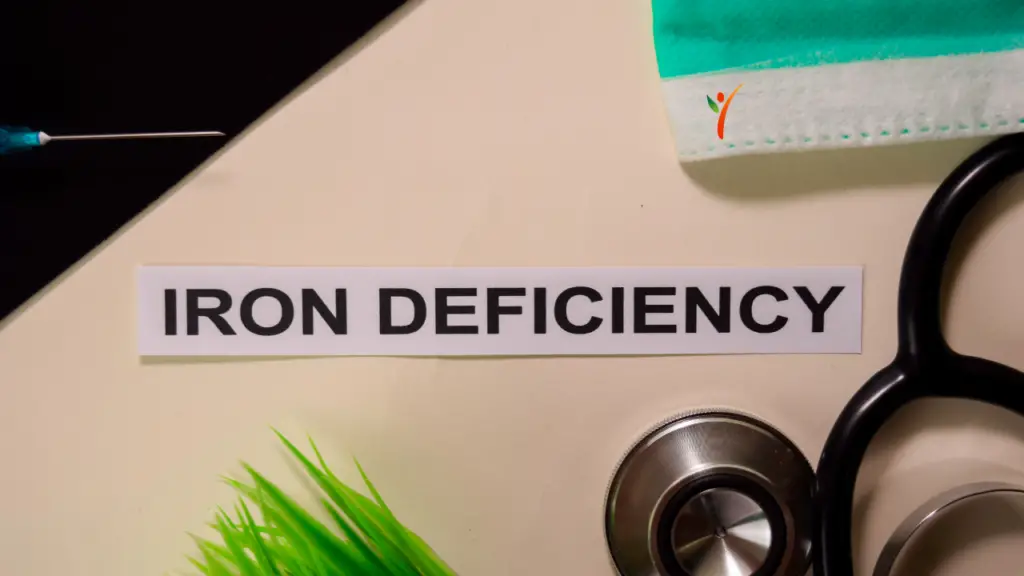
Deficiency of iron or Anaemia is a relatively common condition amongst some people. But it is incredibly prevalent in those with celiac disease or who have gluten sensitivity. Since your body does not accept the gluten, it also loses its ability to absorb the nutrients from your food properly.
With this, your body loses the ability to absorb adequate amounts of iron. When your body has insufficient iron levels, you face persistent fatigue, vertigo, headaches, and the likes. Things like iron deficiency are among the first symptoms of gluten intolerance and celiac disease, as the others result from it.
Joint And Muscle Pain

Having a nagging joint or muscle pain is not just a sign of aging. Gluten intolerance may be the cause of your frequent body pains.
People who have celiac disease have an already existing over-sensitive framework of muscles and nerves. Their sensory nerves immediately activate when they consume gluten, thus causing pain in their joints and muscles.
At times numbness in the limbs can also be one of the side effects. You should visit your doctor and get yourself checked for gluten intolerance or celiac disease if this has frequently been happening to you and causing you discomfort.
Gluten-free And Silent Celiac Disease
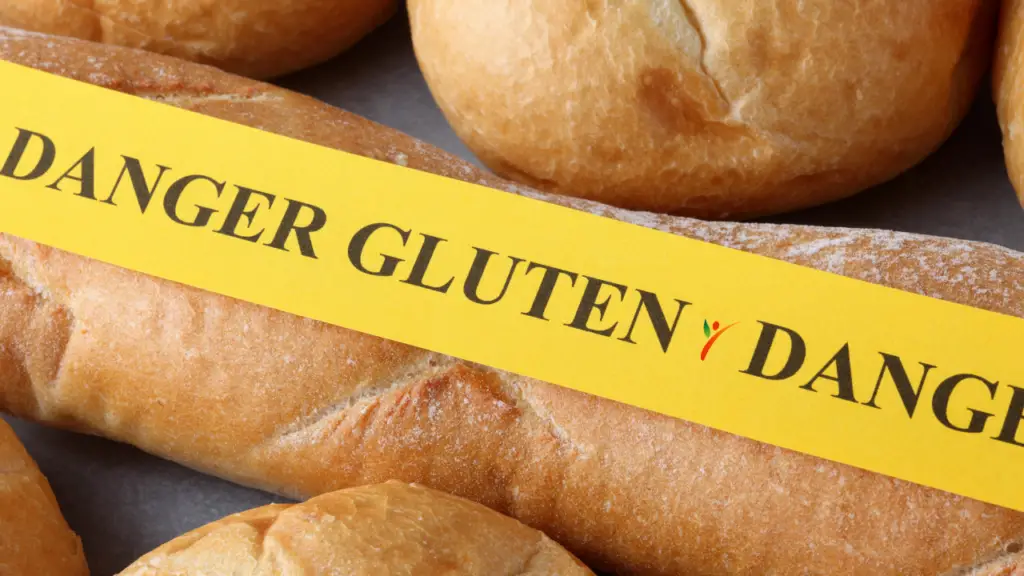
Now that you know of the various gluten intolerance symptoms, you can be checking yourself. But what about when it is silent celiac disease, and you do not immediately know about it? Well, if you have ever experienced any of the symptoms mentioned above frequently, it may be time that you switch to a gluten-free diet.
Doctors and nutritionists have long recommended the gluten-free diet for silent celiac disease.
So, what is this silent celiac diet, and how should you follow it?
It can feel overwhelming and confusing when you think about what you can eat and what you need to quit when on a silent celiac diet. But it is not all that difficult, and we are right here to help you. Here is a gluten-free food list for silent celiac disease. Try adhering to this, and you will find the diet becoming much simpler for you.
Food
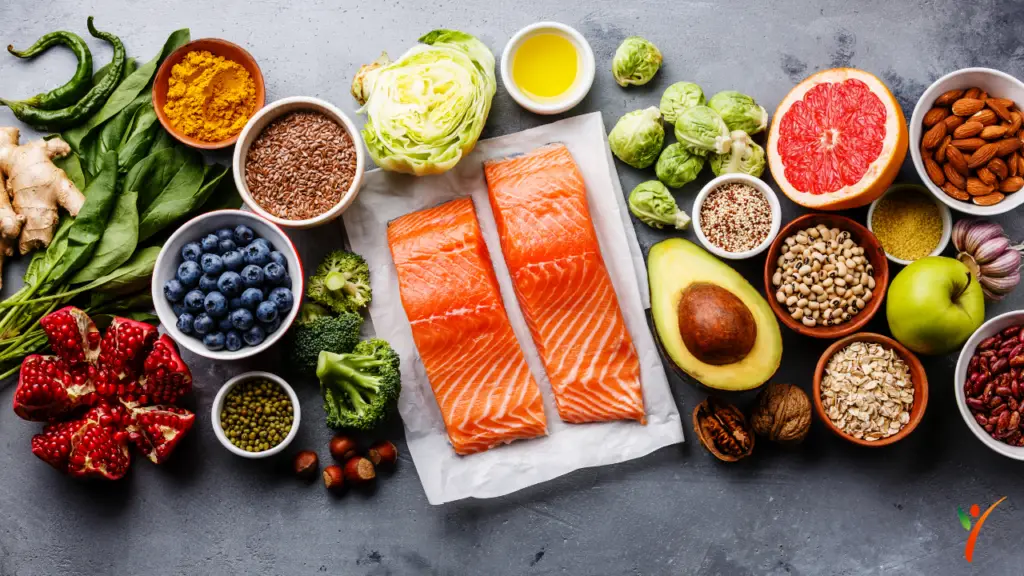
You need to forego all foods and ingredients that may contain gluten on a silent celiac diet. So, anything made of wheat, rye, barley, or in the possibility of gluten contamination is off-limits for you.
What you can eat is –
- Meat –
Preferably white meat or lean meat like chicken, turkey, fish, and seafood. Avoiding red meat.
- Grains –
Corn, rice, quinoa, buckwheat, millets, etc. (avoid wheat, rye, barley.)
- Vegetables –
Mostly green leafy and cruciferous veggies like broccoli, lettuce, spinach, etc.
- Fruits –
All fruits are great on a gluten-free diet but pay attention to the high glycemic ones if you also have diabetes. Fruits will majorly compensate for all the lost nutrients when on a gluten-free diet.
- Lentils –
Lentils are the best food for proteins and lots of vitamins. And they are gluten-free, so that makes them perfect for a gluten-free diet.
- Brown Rice –
You cannot eat wheat due to its gluten content, but rice is a great alternative. Many people perceive rice to be the cause of their weight gain. But it is, in fact, wheat due to its gluten content, which contains more carbs and causes weight gain.
- Potatoes –
Potatoes, namely sweet potatoes, and yams do not contain any gluten. Both are an excellent food to consume on a gluten-free diet and even for losing weight. For women with PCOS, sweet potatoes and yams act as a vital food.
- Oats –
You can never go wrong with having oats for breakfast. They are super healthy and gluten-free so that you can rely on them as a great gluten-free breakfast food.
- Quinoa –
The alternative to wheat is quinoa. Heeding the demands of eating healthy, many chefs have curated lip-smacking and delicious recipes with quinoa.
Drinks

When on a gluten-free diet, natural fruit juices are best, and you should avoid any pre-packaged juices. They contain lots of preservatives and sugar, which is super unhealthy. If you want to make sure there is no gluten contamination in your liquids, the best option is to make it at home!
Water – water is truly an elixir. Nothing can be better than water as a drink. It helps to flush out toxins and hydrate your body. If you have celiac disease children, it can be challenging to make them drink lots of water. You can flavor the water by infusing it with some fruits like strawberries, lemon, or mint. Flavored water is relatively healthy to maintain the ion balance in your body.
Gluten-free alcohol – many brands have started producing gluten-free varieties of liquor. You need to thoroughly check the labels before buying it to ensure no trace of gluten in it.
Beer can be contaminated by gluten after it undergoes processing. It is because of the various ingredients added to the beer after its manufacturing process. As for vodka, it is naturally gluten-free when it undergoes the distillation process. But it is best if you were careful about flavored vodka as it poses a threat of having gluten. Remember to ask for gluten-free alcohol when you dine in restaurants, so you avoid consuming gluten.
Final Words

Dealing with celiac disease can be stressful at first. But you need to maintain a positive attitude and take extra care to avoid gluten in any way.
Silent celiac disease is not easily detectable, so you need to be extra cautious. When you notice the first symptoms common to celiac disease, you should immediately get yourself tested. Testing yourself earlier can help you take the necessary precautions and eliminate gluten from your diet.
Before you start any new diet, contact your doctor. Each body is different and has different requirements. Without consulting your doctor would only cause you to miss many essential nutrients on a gluten-free diet.

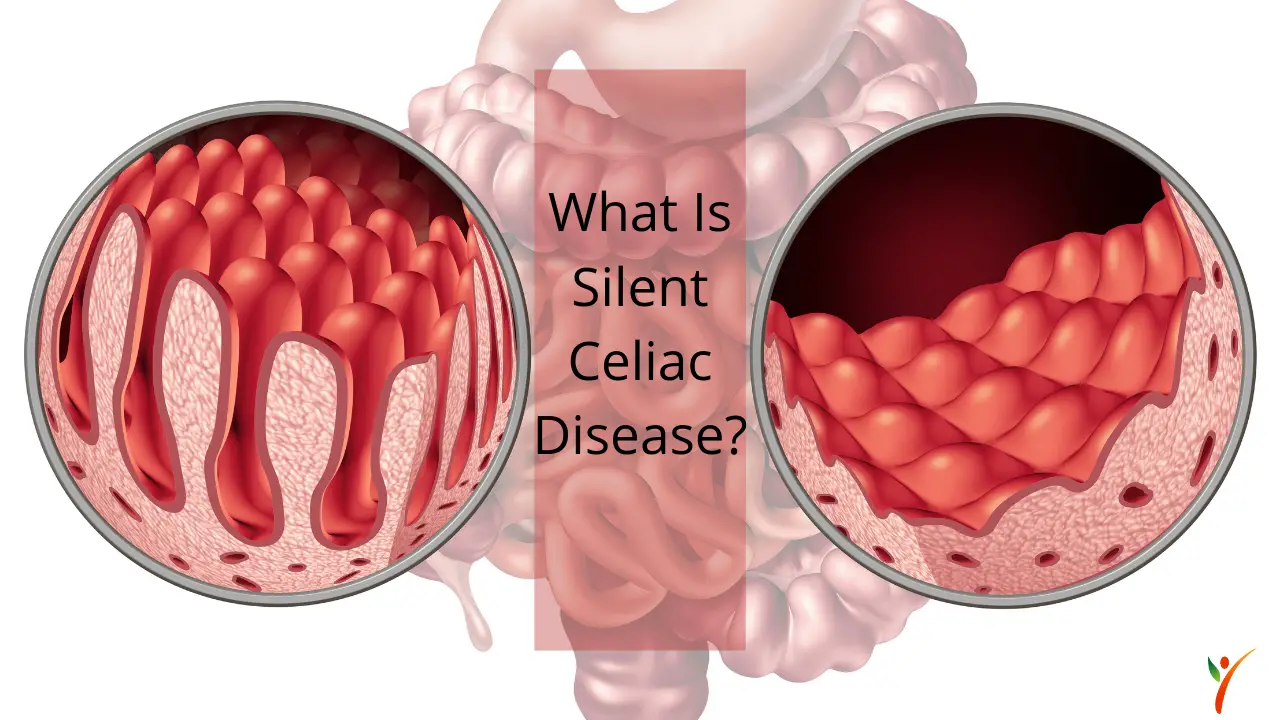


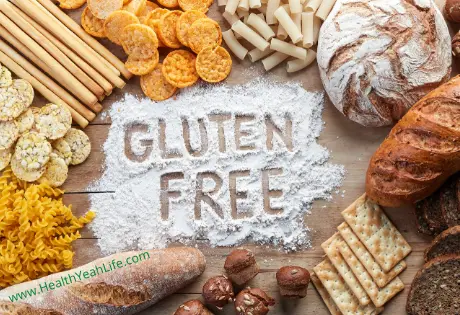

2 thoughts on “What Is Silent Celiac Disease?”
Comments are closed.